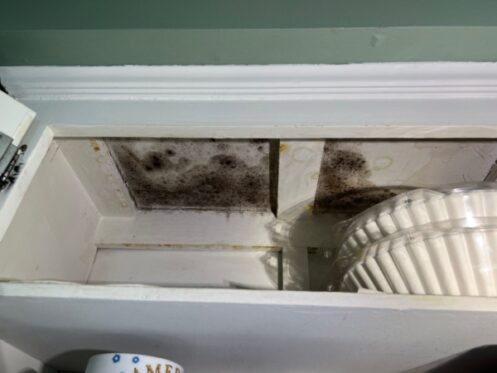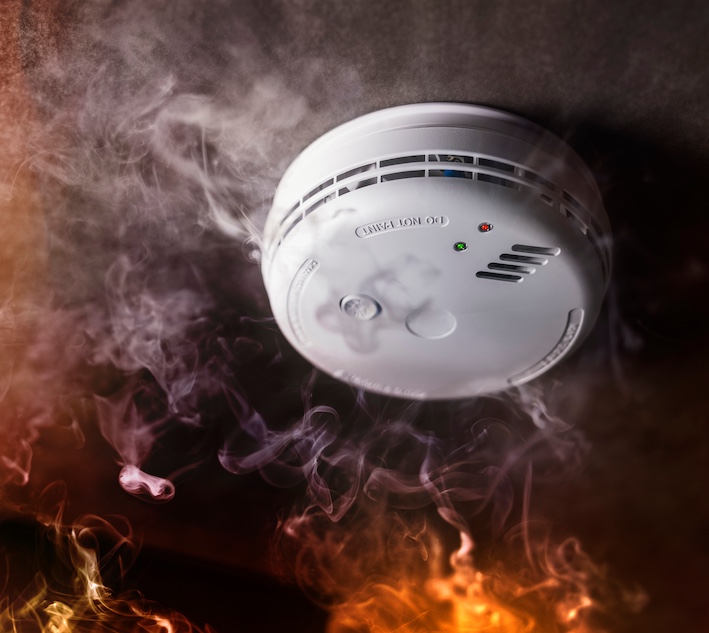Mold exposure is a hidden danger that can lead to troubling symptoms for our pets. Just like humans, dogs can experience a range of health effects, but these signs can be easy to miss. Recognizing these symptoms early can make a big difference in protecting your dog’s health. Here’s a look at how mold exposure might affect your dog and when to seek help.
Common Symptoms of Mold Exposure in Dogs
Dogs can be surprisingly sensitive to mold exposure because they often spend a lot of time indoors. Here are the most common signs to watch for:
Respiratory Issues
Mold spores can irritate the respiratory tract and cause allergic reactions. Like humans, dogs can experience sneezing, itchy eyes, and nasal congestion due to mold allergies. A runny nose, often with clear or yellow mucus, can indicate irritation. Frequent coughing and sneezing are common, often mimicking kennel cough. However, symptoms will persist as long as mold exposure continues.
Prolonged exposure can lead to persistent inflammation in the nasal passages, called chronic allergic rhinitis, requiring ongoing management. Dogs with asthma or other pre-existing respiratory issues may be more vulnerable to wheezing or labored breathing. Respiratory distress is serious and may worsen if exposure continues. It is best to consult a vet if your dog shows these symptoms.
Digestive Upset
Ingesting mold spores from eating moldy food or licking mold-contaminated surfaces can lead to gastrointestinal symptoms. Ingested mold toxins can cause excessive drooling in dogs as the body tries to eliminate toxins. Dogs affected by mold exposure may become disinterested in food, which can lead to weight loss and nutritional deficiencies. Vomiting and diarrhea are also common and can lead to dehydration if prolonged. If your dog shows persistent gastrointestinal issues, mold exposure could be the culprit.
Skin and Coat Problems
Mold can affect your dog’s skin if spores are transferred through touch or if your dog spends time in a mold-infested environment. Dogs exposed to mold may constantly scratch, chew, or lick at irritated spots. Skin reactions can occur from contact with mold spores, including red, inflamed skin or hives.
Some dogs might develop patches of fur loss due to excessive scratching and skin irritation. Open wounds from scratching can lead to secondary infections requiring treatment. Regular monitoring of your dog’s skin condition is vital, especially in mold-prone environments.
Behavioral Changes
Exposure to mold spores can cause dogs discomfort, leading to behavior changes. Due to respiratory distress and skin irritation, dogs might become anxious or restless. Some dogs may vocalize excessively or appear to whine in pain. Constant mold exposure can even cause tiredness, especially if the respiratory and digestive systems are affected.
Neurological Symptoms
In rare cases, prolonged mold exposure can lead to neurological symptoms in dogs, particularly when mycotoxins are involved. Dogs may appear confused or have difficulty navigating their environment. Increased aggression can result from this discomfort and disorientation. Dogs exposed to high levels of toxic mold may also experience tremors or even seizures. If you notice any neurological symptoms, seek veterinary care immediately.
Long-Term Health Risks
Prolonged mold exposure can lead to more serious health conditions in dogs:
Chronic Respiratory Issues
Respiratory issues can become severe if exposure continues without intervention. Conditions like bronchitis or even asthma can develop, particularly in dogs with pre-existing respiratory conditions or sensitivities. In more severe cases, dogs may experience pneumonia, requiring medical intervention to clear the infection.
Fungal Infections
Prolonged exposure to mold can also lead to various fungal infections in dogs. Mold spores can colonize the skin or enter the body through inhalation or ingestion, leading to conditions such as aspergillosis or candidiasis.
Aspergillosis is caused by the Aspergillus species and can result in serious health complications, especially in immunocompromised dogs. Symptoms may include nasal discharge, sneezing, and, in severe cases, systemic infections that affect other organs. Treating fungal infections requires quick veterinary care, often involving antifungal medications.
Weakened Immune System
Chronic mold exposure can weaken a dog’s immune system, making them more susceptible to other infections and health issues. The constant fight against mold spores can deplete a dog’s immune resources, leading to an increased risk of bacterial infections or other illnesses. This is especially concerning for older dogs or those with existing health problems, as their bodies may not be able to cope with additional stressors.
Regular Vet Check-Ups
Regular veterinary check-ups can help catch health issues early. Inform your vet if you suspect mold exposure. Your dog will undergo a thorough examination to determine the extent of the exposure and any related health problems. The vet may perform tests such as blood work, X-rays, or skin cultures to diagnose the condition accurately.
Prevention
Regular Cleaning
Keep your home clean and dry to minimize mold growth. Pay special attention to damp areas like basements, bathrooms, and kitchens. Preventing mold growth in your home and keeping your dog’s environment clean and dry are crucial steps to avoid infections.
Proper Ventilation
Maintaining good air quality can help prevent mold-related respiratory issues. To reduce moisture buildup, ensure your home is well-ventilated. Use dehumidifiers in areas prone to dampness.
Inspection
If you suspect mold in your home, hire a professional inspection and remediation service, like Pur360, to identify and eliminate the problem.
Mold exposure can have a serious impact on your dog’s health, leading to symptoms and potential long-term conditions. As a responsible pet owner, it’s essential to monitor your living environment for mold and address any issues promptly. If you suspect that your dog has been exposed to mold, consult your veterinarian for guidance and appropriate treatment.
We also recommend working with a qualified professional to remove the mold and prevent it from returning. Pur360 is here to provide eco-friendly mold removal services that are safe for both you and your pets. We eliminate mold at the source to ensure a healthy space for your furry friends.



